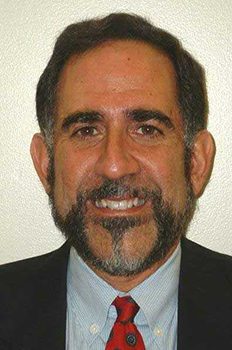By Alan Tonelson
April 25, 2018
So you think that, even after the global financial crisis and ensuing painful recession predicted by hardly any leading economists, American leaders should keep taking this profession seriously on key issues like trade? Then you need to check out this new article by Alan S. Blinder.
It’s especially striking because Blinder is about as big in economic circles as they come, occupying a full professorship at Princeton University and having served as second in command at the Federal Reserve. But if he’s right – and by definition, someone like him should know – the consensus among economists about trade stems from views about national economies that should disqualify those holding them from shaping policy.
According to Blinder, here’s how economists generally view an economy’s purpose: “to churn out the goods and services that people want, efficiently and at low prices, so that standards of living will be high. That’s why, for example, the Soviet Union failed and we succeeded.”
What about the public at large? “[T]he citizenry seems more attracted to the producers’ perspective: The fundamental purpose of an economy is to provide jobs.”
Thus when it comes to international trade, “Almost all economists favor open trade. It gets Americans cheaper and sometimes better goods, and enhances the efficiency of our economy. Trade isn’t, we insist, mainly about creating jobs or destroying them. It’s about deploying the labor of every nation where it is most productive. Economists see imports as the rewards for trade, exports as the cost.
“Public and political opinion often takes just the opposite perspective. Exporting is seen as the good part of trade—it creates jobs. Importing is a problem—it destroys jobs.”
The key term here is “producers’ perspective” – which, if you think about it for more than a moment, inescapably entails far more than the “jobs” on which Blinder somewhat condescendingly fixates. Of course, workaday folks are thinking first and foremost of their ability to earn income (overwhelmingly through jobs, since most aren’t wealthy heirs and heiresses). But a genuine producers’ perspective must involve all of the institutions and wherewithal needed to create jobs – i.e., a nation’s wealth-creating base.
Blinder does state that economists prize a nation’s ability “to churn out…goods and services…efficiently and at low prices, so that standards of living will be high,” and that by “deploying the labor of every nation where it is most productive,” trade contributes to this goal. But the consumers’-first devotion he attributes to economists points to a crucial truth: Such economists count heavily, at least, on low prices, not incomes, to create and even increase those high living standards.
Which is largely why, as Blinder and so many of his economics colleagues have written, they’re so indifferent to trade balances, and especially to trade deficits. Otherwise, they’d have to explain how economies significantly and/or chronically in the red – and thus by definition way short of earned income – can secure the resources needed to keep living standards at an acceptable level, much less raise them, without heavily borrowing, or selling off big chunks of their assets.
In other words, what Blinder is really saying is that economists believe that the consumption-led model of a national economy is sustainable, independent of whether that economy can generate enough income (from production) to pay for its spending responsibly (i.e., without running up excessive debt). What the public believes is that, without adequate sources of earned income (from a healthy production base), an economic system not only can’t produce jobs or high living standards. It can’t be viable in the first place.
Blinder is famous in part for what he calls “the Lamppost Theory, which holds that “Politicians use economics the way a drunk uses a lamppost—for support, not for illumination.” But their consumer-centric views raise the question of why responsible policymakers would use free trade-cheerleading economists for any reason.
 ALAN TONELSON
ALAN TONELSON
Alan Tonelson is Founder of the blog RealityChek – www.alantonelson.wordpress.com – which covers a wide range of domestic and international policy issues along with political and social trends.
For 18 years before leaving to launch RealityChek, Tonelson followed the impact of globalization on the U.S. economy, domestic manufacturing, and U.S. national security for the U.S. Business and Industry Council. This national business organization represents nearly 2,000 domestic American companies, most of them small and medium-sized manufacturers.
Alan Tonelson is a regular columnist with Industry Today.
Scott Ellyson, CEO of East West Manufacturing, brings decades of global manufacturing and supply chain leadership to the conversation. In this episode, he shares practical insights on scaling operations, navigating complexity, and building resilient manufacturing networks in an increasingly connected world.